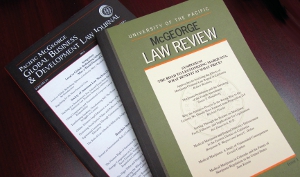A Passage Through India (and Beyond) or a Case of Love Thy Neighbour?
Document Type
Article
Publication Date
1995
Abstract
The geographical disadvantages faced by land-locked states place them in a particularly vulnerable position: unable to compete on equal trading terms with coastal neighbours, they are highly susceptible to all forms of economic and political ‘aggression’. Such measures produce more than the usual degree of ‘inconvenience’, but can so destabilise the state as to compromise its existence. Equity and the sanctity of ‘statehood’ require the protection of such states by furnishing them transit rights. Not only must international law recognise such rights as existing in one form or another, but must also provide adequate means of securing them. A society unwilling to redress natural imbalances and prepared to perpetuate an inherently unfair system is a society committed to conflict, rather than the maintenance of peace and security. Leiden Journal of International Law Foundation. © 1995, Foundation of the Leiden Journal of International Law. All rights reserved.
Publication Title
Leiden Journal of International Law
ISSN
0922-1565
Volume
8
Issue
2
DOI
10.1017/S0922156500003344
First Page
311
Last Page
336
Recommended Citation
Christopher Hare & Jarrod Wong,
A Passage Through India (and Beyond) or a Case of Love Thy Neighbour?,
8
Leiden Journal of International Law
311
(1995).
Available at:
https://scholarlycommons.pacific.edu/facultyarticles/383



